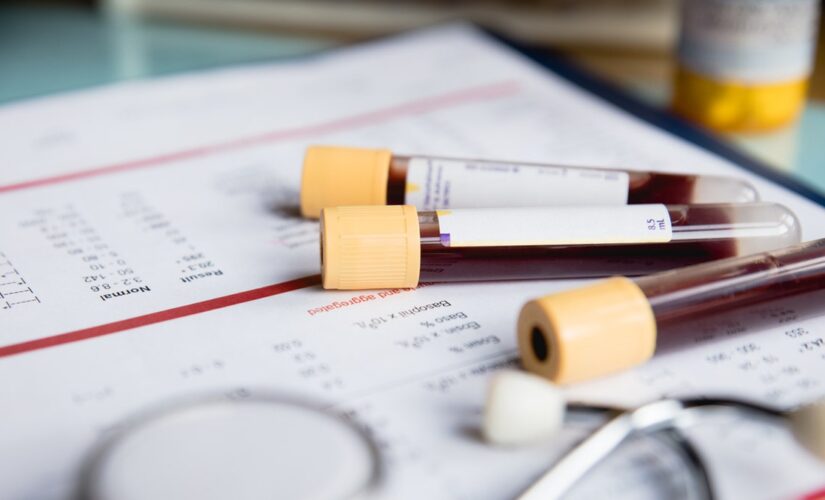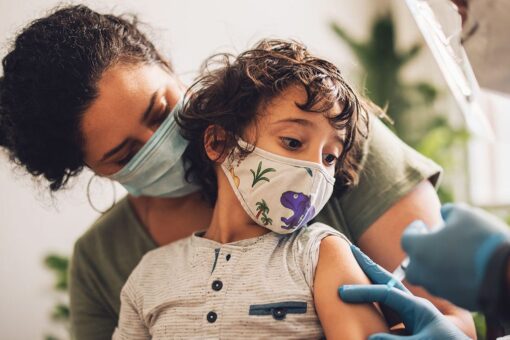Researchers have developed a new machine-learning model to detect cancers that are in their early stages of disease by examining DNA fragments from cancer cells in the blood.
A University of Wisconsin–Madison research team was able to detect cancer in the bloodstream in most of the samples tested, it said.
Muhammed Murtaza, professor of surgery at the UW School of Medicine and Public Health based in Madison, Wisconsin, led the study, which was published recently in Science Translational Medicine, a medical journal from the American Association for the Advancement of Science, according to the study’s press release.
KIRSTIE ALLEY’S ‘RECENTLY DISCOVERED’ COLON CANCER BATTLE: WHAT TO KNOW ABOUT THE DISEASE
“We’re incredibly excited to discover that early detection and monitoring of multiple cancer types are potentially feasible using such a cost-effective approach,” said Murtaza in the press release.
Earlier detection of many cancers will lead to better outcomes for patients, the release noted.
“We’re incredibly excited to discover that early detection and monitoring of multiple cancer types are potentially feasible using such a cost-effective approach,” says the lead author of a new study.
(iStock)
Although other scientists are also developing blood tests to detect cancer earlier, the present technology has limitations, such as cost and the “sensitivity” of the test.
Sensitivity, in this case, refers to the ability of the test to correctly detect the presence of cancer, according to the Centers for Disease Control and Prevention (CDC).
How is the test done?
When cells die as part of the body’s natural process of cell turnover, fragments of DNA are released outside the cells. These start to circulate in the bloodstream — namely, the plasma, which is the liquid portion of the blood, according to the researchers.
“It should be focused on patients that have significant family histories or personal risk factors, or that have genetic syndromes that are associated with getting multiple cancers.”
The research team hypothesized that cancer cells have DNA fragments that are different from healthy cells, specifically where the DNA strands “break.” Nucleotides, which are the “building blocks of DNA,” surround these break points.
ALZHEIMER’S DISEASE MAY BE DETECTABLE BY KEY FLOOD TEST, STUDY FINDS
The research team used a special technique that the study named Genome-wide AnaLYsis of FRagment Ends — or GALYFRE — to analyze the “cell-free” DNA from 521 samples.
For a new study, a research team at the University of Wisconsin-Madison also “sequenced” data from an additional 2,147 samples from two groups of people: healthy individuals — and patients with 11 different cancer types.
(iStock)
The team also “sequenced” data from an additional 2,147 samples from two groups of people: healthy individuals, and patients with 11 different cancer types.
“Sequencing DNA means determining the order of the four chemical building blocks — called “bases” — that make up the DNA molecule,” according to the National Institutes of Health’s website on human genome research.
‘EYE’ ON LIFE: WOMAN GOES VIRAL FOR SHOWING HOW SHE INSERTS ARTIFICIAL EYE AFTER CANCER BATTLE
“The sequence tells scientists the kind of genetic information that is carried in a particular DNA segment.”
The research team then used these analyses to develop a metric that could reflect the proportion of DNA molecules that were from cancer in each sample.
Machine-learning model
They combined this measure with the genetic information found on the DNA fragments to develop a model that trains a machine to compare DNA fragments from healthy cells to DNA fragments from different types of cancer cells.
“The sequence tells scientists the kind of genetic information that is carried in a particular DNA segment.”
This model differentiated people with cancer at any stage of their diagnosis from people without cancer 91% of the time.
It also “accurately identified samples from patients with stage 1 cancer in 87% of cases, suggesting it holds promise for detecting cancer in early stages,” per the release.
The research team hopes to perform more clinical studies to validate the blood test for specific cancers, such as pancreatic cancer and breast cancer.
(iStock)
The study, however promising, notes that more research is needed to apply GALYFRE’s use for patients in different age groups and those who have multiple medical problems.
Refinement needed for future
The research team hopes to perform more clinical studies to validate the blood test for specific cancers, such as pancreatic cancer and breast cancer.
“One direction we are taking is refining GALYFRE to make it even more accurate for some patients who are at risk of developing specific types of cancers,” Murtaza noted in the release.
IF YOU RETIRE EARLY, YOU COULD BE HARMING YOUR HEALTH: NEW STUDY
His team is also looking to see if this technology can be used not only for earlier detection of cancers, but also for monitoring how chemotherapy patients respond to cancer treatments.
Researchers hope that “this work will lead to a blood test for cancer detection and monitoring that will be available clinically in the next 2-5 years for at least some conditions.”
“I find that using cell-free DNA and a liquid biopsy will be most useful for patients with a known cancer diagnosis and [for] post treatment to monitor for disease recurrence — avoiding the need for [high-risk] biopsy,” Dr. Oren N. Gottfried, professor at Duke University School of Medicine in Durham North Carolina, told Fox News Digital.
“This is particularly true with brain cancer, where each brain biopsy includes considerable risk,” added Gottfried, who is also a neurosurgeon.
CLICK HERE TO SIGN UP FOR OUR HEALTH NEWSLETTER
“In general as a screening tool, I feel it should be focused on patients that have significant family histories or personal risk factors, or that have genetic syndromes that are associated with getting multiple cancers.”
CLICK HERE TO GET THE FOX NEWS APP
Murtaza of the UW School of Medicine and Public Health hopes with further research and development that “this work will lead to a blood test for cancer detection and monitoring that will be available clinically in the next 2-5 years for at least some conditions — and ultimately be accessible for patients with limited health care resources in the U.S. and around the world,” he said in the news release.




